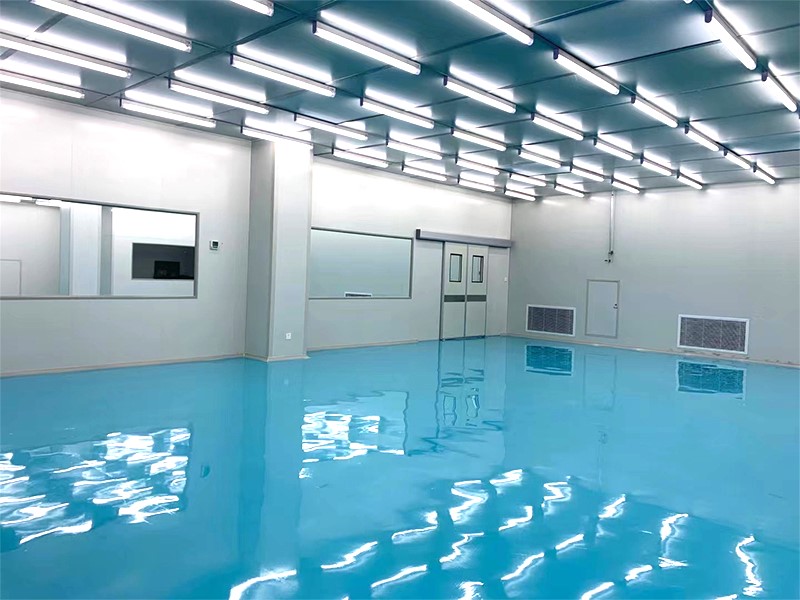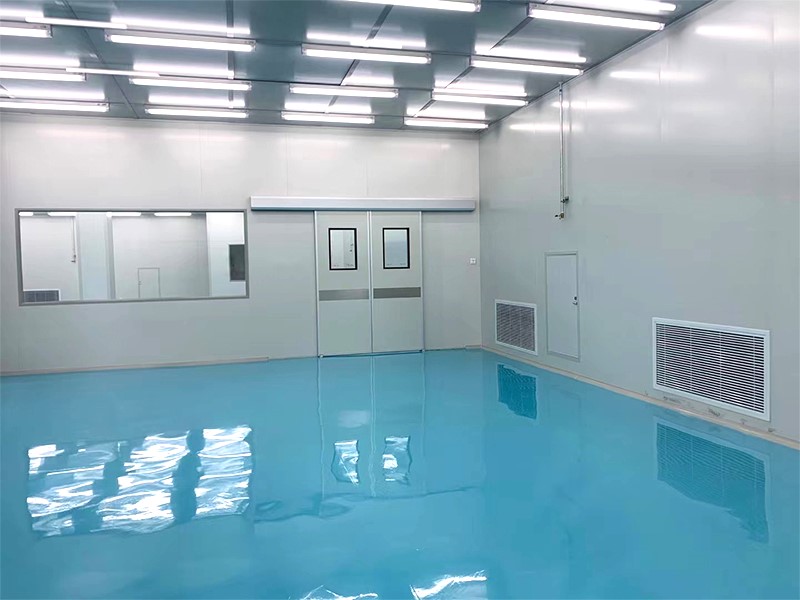

Clean room have strict regulations on environmental temperature, humidity, fresh air volume, illumination, etc., ensuring the production quality of products and the comfort of the personnel's working environment. The entire clean room system is equipped with a three-stage air purification system using primary, medium and hepa filters to control the number of dust particles and the number of sedimentation bacteria and floating bacteria in clean area. The hepa filter serves as a terminal filtration device for clean room. The filter determines the operating effect of the entire clean room system, so it is very important to grasp the replacement time of the hepa filter.
Regarding the replacement standards of hepa filters, the following points are summarized:
First, let’s start with hepa filter. In clean room, whether it is a large-volume hepa filter installed at the end of the purification air-conditioning unit or hepa filter installed at hepa box, these must have accurate regular running time records, cleanliness and air volume are used as the basis for replacement. For example, under normal use, the service life of the hepa filter can be more than one year. If the front-end protection is done well, the service life of the hepa filter can be as long as possible. There will be no problem at all for more than two years. Of course, this also depends on the quality of the hepa filter, and it may be longer;
Second, if the hepa filter installed in clean room equipment, such as the hepa filter in air shower, if the front-end primary filter is well protected, the service life of the hepa filter can be as long as more than two years; such as purification work for the hepa filter on the table, we can replace the hepa filter through the prompts of the pressure gauge on clean bench. For hepa filter on laminar flow hood, we can determine the best time to replace hepa filter by detecting air velocity of hepa filter. The best time, such as the replacement of hepa filter on fan filter unit, is to replace hepa filter through the prompts in PLC control system or the prompts from the pressure gauge.
Third, some of our experienced air filter installers have summarized their valuable experience and will introduce it to you here. We hope it can help you be more accurate in grasping the best time to replace hepa filter. The pressure gauge shows that when the hepa filter resistance reaches 2 to 3 times of the initial resistance, maintenance should be stopped or the hepa filter should be replaced.
In the absence of the pressure gauge, you can determine whether it needs to be replaced based on the following simple two-part structure:
1) Check the color of the filter material on the upstream and downstream sides of the hepa filter. If the color of the filter material on the air outlet side begins to turn black, be prepared to replace it;
2) Touch the filter material on the air outlet surface of the hepa filter with your hands. If there is a lot of dust on your hands, be prepared to replace it;
3) Record the replacement status of the hepa filter multiple times and summarize the optimal replacement cycle;
4) Under the premise that the hepa filter has not reached the final resistance, if the pressure difference between the clean room and the adjacent room drops significantly, it may be that the resistance of the primary and medium filtration is too big, and it is necessary to prepare for replacement;
5) If the cleanliness in clean room fails to meet the design requirements, or there is negative pressure, and the replacement time of the primary and medium filters has not been reached, it may be that the resistance of the hepa filter is too big, and it is necessary to prepare for replacement.
Summary: Under normal use, hepa filters should be replaced every 2 to 3 years, but this data varies greatly. Empirical data can only be found in a specific project, and after verification of clean room operation, empirical data suitable for clean room can only be provided for use in air shower of that clean room.
If the application scope is expanded, life span deviation is inevitable. For example, the hepa filters in clean rooms such as food packaging workshops and laboratories have been tested and replaced, and the service life is more than three years.
Therefore, the empirical value of filter life cannot be expanded arbitrarily. If the clean room system design is unreasonable, the fresh air treatment is not in place, and the clean room air shower dust control scheme is unscientific, the service life of the hepa filter will definitely be short, and some may even have to be replaced after less than a year of use.
Post time: Nov-27-2023

